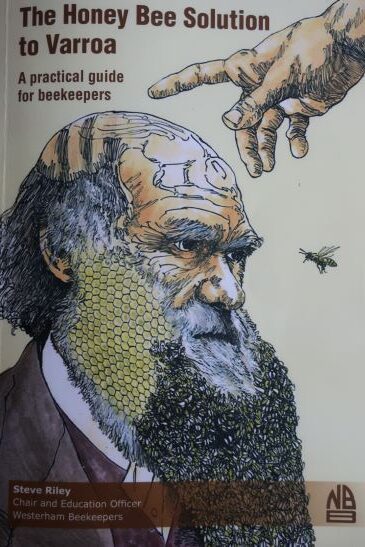
The Week’s Event: Equipment Show
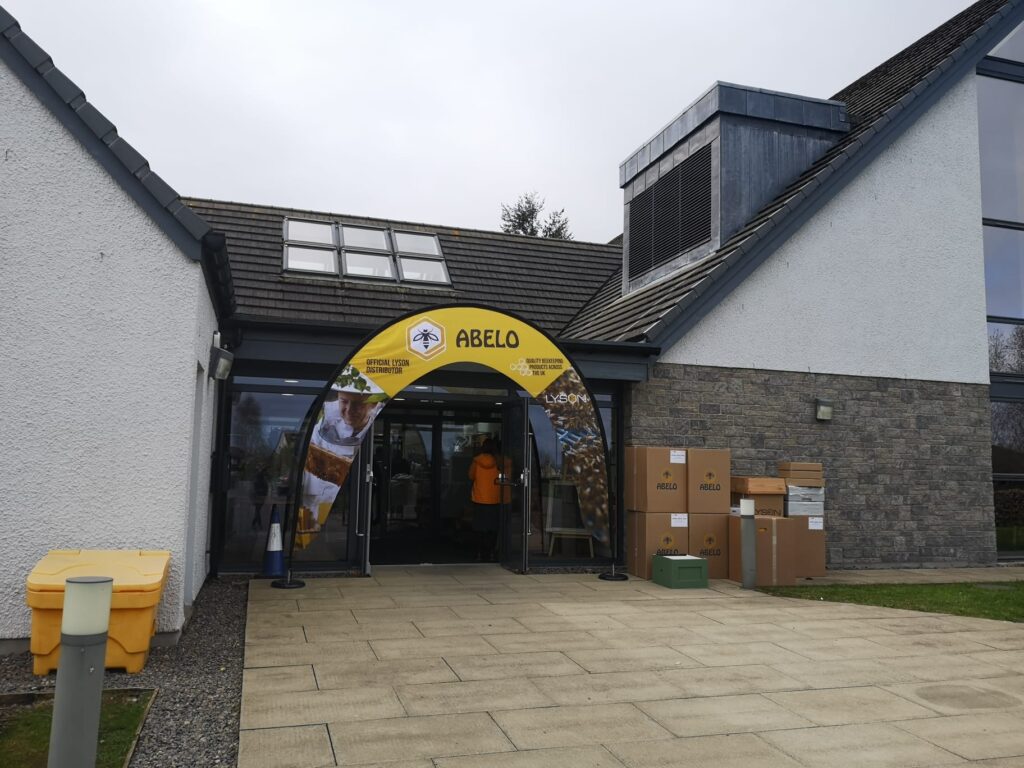
Bee-buddy Cynthia drove us into Inverness last Saturday to visit the first beekeeping equipment show of its kind in the Scottish Highlands. Abelo brought a van load of goods up from the south of England to test the water and see if there is enough interest to run road shows like this north of Hadrian’s Wall in the future. Anyone who lives here up knows just how much more expensive it is to buy beekeeping stuff when astronomical shipping fees are added onto a hefty enough bill when you live in certain Scottish postcodes. So, a chance to buy high quality goods at knockdown prices with no postage is not to be sniffed at.
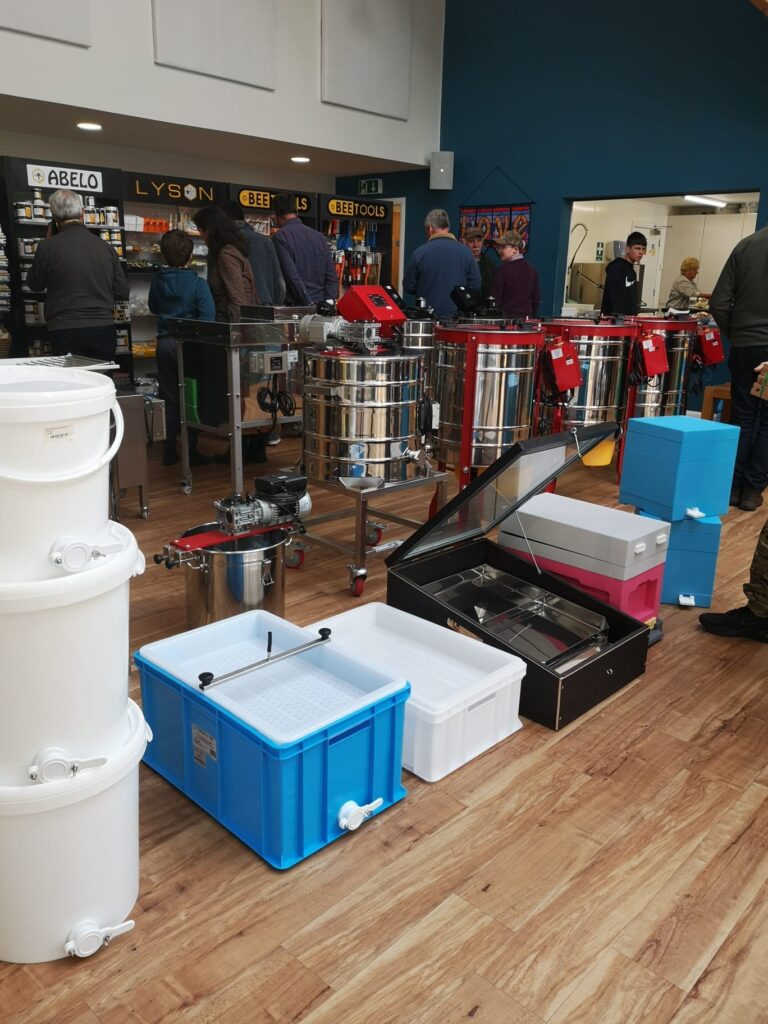
Abelo stocks Polish brand Lyson goods renowned for quality and fair prices and they had a wide range of products on show. https://www.abelo.co.uk/Organiser of the event, the Lochness Honey Company (https://www.facebook.com/groups/522382925945077/user/100063695855094/ ) run by entrepreneur, Andrew Card, had done the research and arranged for certain products to be brought north for customers without commitment to buy. The place was buzzing when we finally reached the right church venue, having not read the directions carefully and done a tour of several other churches in town, an hour or so after opening.
It was a family run event with tea/coffee, and Alison’s delicious Victoria sponge, and lemon drizzle cake on offer with donations to Bees for Development https://www.beesfordevelopment.org/. What made this event stand out from the usual equipment displays at conventions/conferences was the timing. There were no distractions such as lectures to attend, and people wanting to talk to you in limited break times. Here people could take their time perusing products and chatting with friends, and with Damien the owner of Abelo who came north with his team. It was a good chance to network and there was a quiet café-style area away from the main displays.
Local beekeeping associations were invited to visit and recruit new members from the crowd of beekeepers from all over the North and further afield. I think that there are a lot of beekeepers out there who have never heard of local associations and this sort of event is useful in many ways, not least for improving conditions for bees and offering more support for beekeepers.
Cynthia and I need more equipment like a hole in the head, but it was tempting and I had to drag her away from a lovely 12-frame radial extractor which I quite fancied myself. But when you are a small hobbyist beekeeper small is also good when it comes to storing things and neither of us has room for much more after 20 years beekeeping.
This event was so successful that we can look forward to more in the future.
Steve Riley
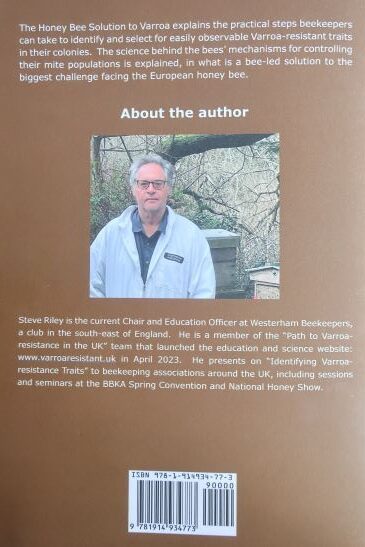
And now to the book I’ve been waiting for since I first met Steve Riley at the start of his adventure; moving slowly and methodically towards (varroa) treatment-free beekeeping. I wasn’t at the recent BBKA (British Beekeepers’ Association) Spring Convention, https://www.bbka.org.uk/, but my friends tell me that the main focus and theme was on moving away from synthetic varroacides to using more natural and bee-friendly methods such as Steve explains in excellent detail. At last, this is good news for everyone.
Steve Riley’s previous guest blogs received a lot of attention here on the Beelistener, https://www.beelistener.co.uk/beekeeping/developing-varroa-resistant-bees-steve-rileys-guest-blog/ and his work with Westerham Beekeepers https://westerham.kbka.org.uk/natural-beekeeping/ is described in more detail in his book.
My copy will probably not spend much time sitting on the shelf. I like to keep my books clean but I can see this one getting well- thumbed and a bit grubby round the edges! Thank you, Steve.
Review
Title: The Honey Bee Solution to Varroa: A Practical Guide for Beekeepers
Author: Steve Riley
Publisher: Northern Bee Books
Year Published: 2024
Paperback, 131 pages
ISBN 978-1-914934-77-3
Cost: £20
Available: Northern Bee Books https://www.northernbeebooks.co.uk/and other good bookstores
The Honey Bee Solution to Varroa: A Practical Guide for Beekeepers is about how we can work with our honey bees to deploy their natural traits to resist Varroa destructor (varroa). This will enable us, over a few years, to stop using chemical or biotechnical treatments and keep healthy productive colonies. Steve Riley is an experienced beekeeper who is currently Chair and Education Officer for Westerham Beekeeper’s Association in the south-east of England. He speaks widely around the UK on how to identify key traits of resistance to varroa and achieve the ultimate goal.
Riley and his colleagues have worked under guidance from, and in close collaboration with, some of the leading scientists in this field. Emeritus Professor Stephen Martin has written the foreword to this book. Riley charts their six-year journey from researching and experimenting, to fine tuning management strategies to achieve success and varroa-resistant bees. We benefit from their mistakes and learn lessons from these pioneers.
There are 15 short chapters laid out under helpful headings. Included is an extensive reference section and recommended reading list, and a useful appendix that charts a stepping-stone approach toward achieving the goal of varroa-resistance. The photographs and diagrams are clear and explanatory, especially the picture of chewed-out pupae on the bottom board, which are a key feature in the selection of resistant bees. The pictures enhance the text and teach us how to find out which colonies are uncapping and recapping brood, which is another strategic feature to note in the process.
Simple monitoring of varroa using open mesh floors (OMF) and bottom boards is advised because we want to study more than just mites. “When you insert a varroa board under an OMF, you have a research lab generating a wealth of information.”
This book is well written and the instructions and explanations are clear, concise, and easy to understand. It will be popular with beekeepers because one of its key features is the simplicity of the methods used for attaining varroa resistance, and the ease of replication making this goal achievable for the newest beekeeper.
We learn the history of treatment- free beekeeping and how South African beekeepers have never treated for varroa. Colonies were lost after varroa arrived in South Africa, but in 5-8 years the colonies that survived built up and developed a resistance that enabled them to flourish. We discover that several groups of UK beekeepers have been working together for some years already to successfully achieve this goal.
One of the key things about solving livestock problems is to fully understand the biology of the animals involved. Riley does an excellent job of explaining the life history of varroa and how varroa resistant colonies manage them. Did you know that a foundress varroa mite can live up to one year? And, did you know that the dispersal phase in the varroa life cycle is what we used to call the phoretic phase? Riley’s book is up to date which makes it so useful for beekeepers studying for modular exams.
I agree with the author that, “mainstream beekeeping does not currently teach about selection for varroa-resistance. As a result, the honey bee and varroa relationship is moving further out of balance. By using miticides, beekeepers are unwittingly removing the natural selection pressure on their honey bees to deal with the mites. The result is a cycle of breeding from bees which are susceptible to varroa.”
The Honey Bee Solution to Varroa is a timely publication when the world is seeking better ways to live sustainably and be less reliant on chemicals to solve problems. Every beekeeper needs to be aware of what is going on with modern varroa management, even if they do not plan to follow the advice shared in this ideal guide book.
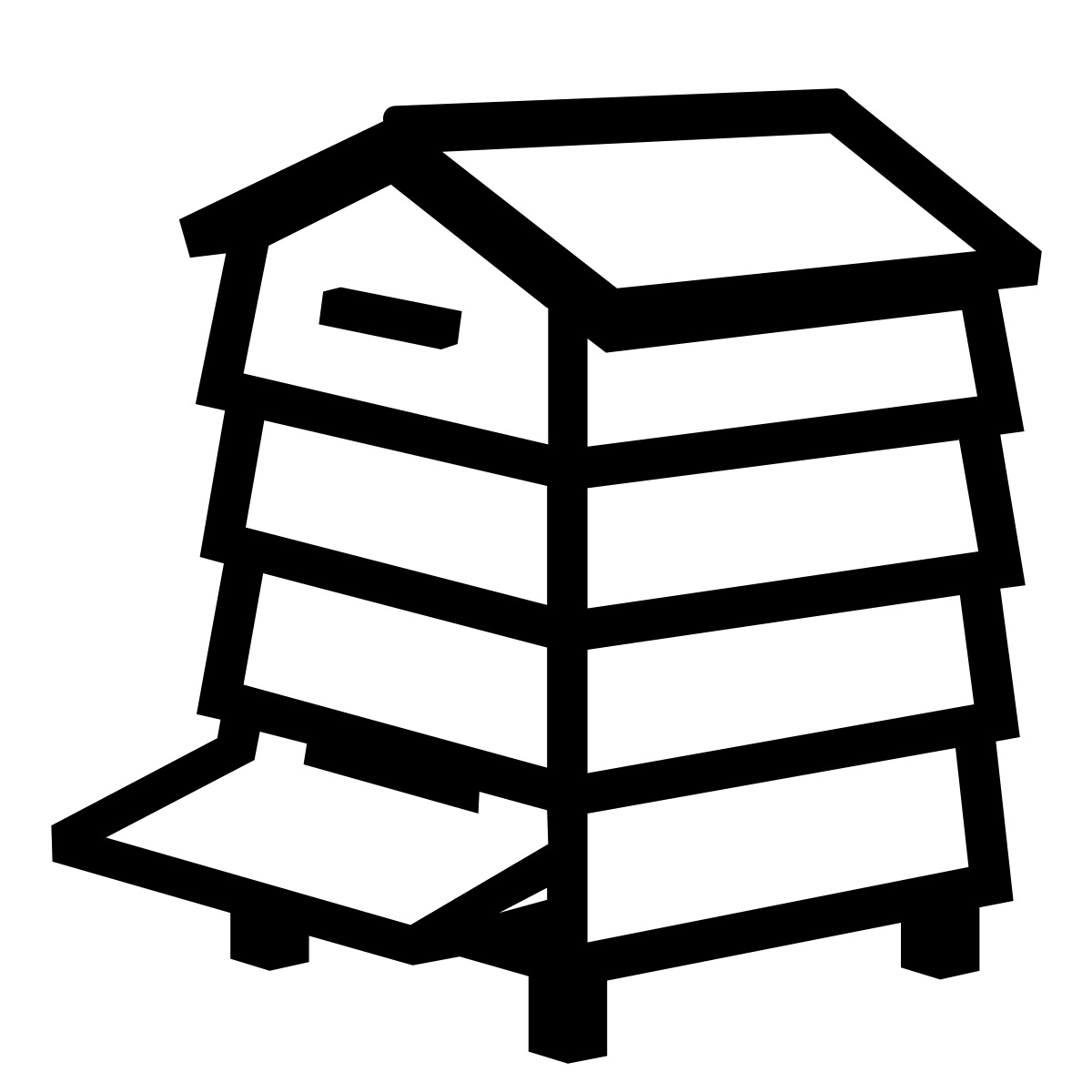
Thank you for providing a peek at the bee supply show in Inverness. Good to see folks being shown Lyson extractors. I bought one about 15 years ago and can attest that it is a sturdy, well-made machine powered by an excellent electric motor. Thanks, too, for spreading the word about Steve Riley’s important book. Such a great title: The Honey Bee Solution to Varroa.
Good to know that you are happy with your Lyson extractor. Thank you for commenting on the post, Tom.
Thank you Ann and Tom for the support. With broadening education in this area, selecting for varroa resistant traits should become common practice in beekeeping across the UK and Ireland.
I hope so too, Steve. Thank you for commenting.